- May 9, 2025
-
-
Loading

Loading
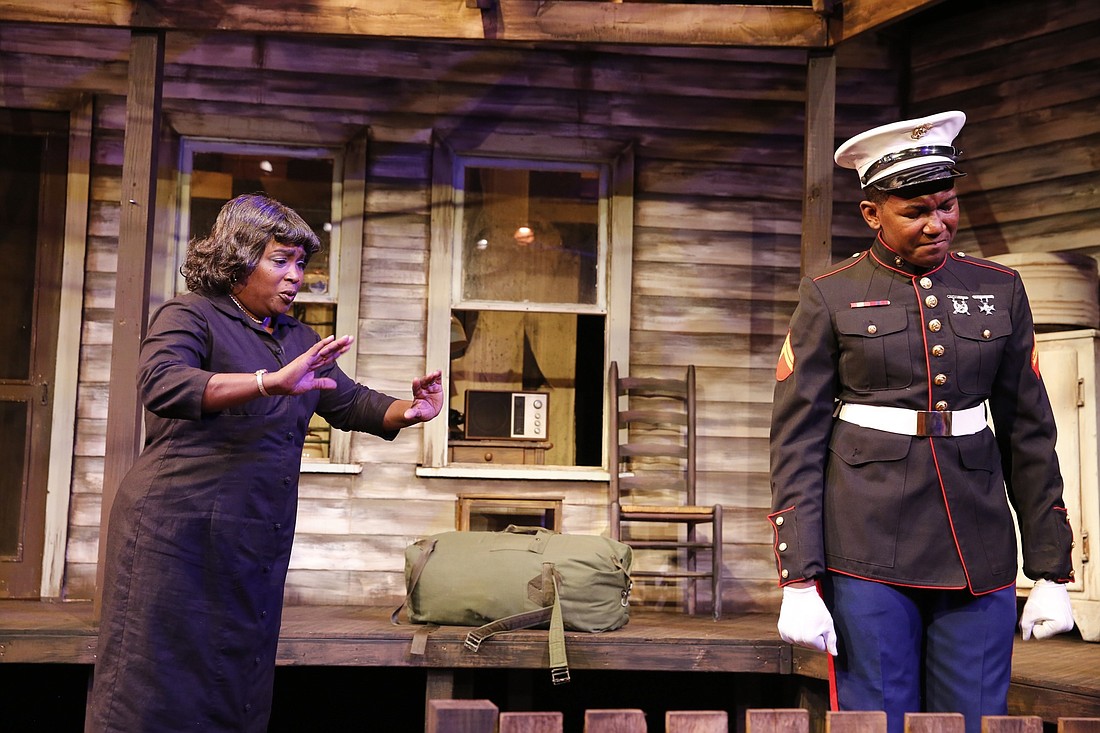
August Wilson’s Pulitzer Prize-winning “Fences” explores the turbulent boundaries of self, family, loyalty, racial identity and personal achievement at Venice Theatre. Wilson’s rich, multilayered play offers seven well-drawn characters. One larger-than-life character puts the others in his shadow.
Troy Maxson is his name.
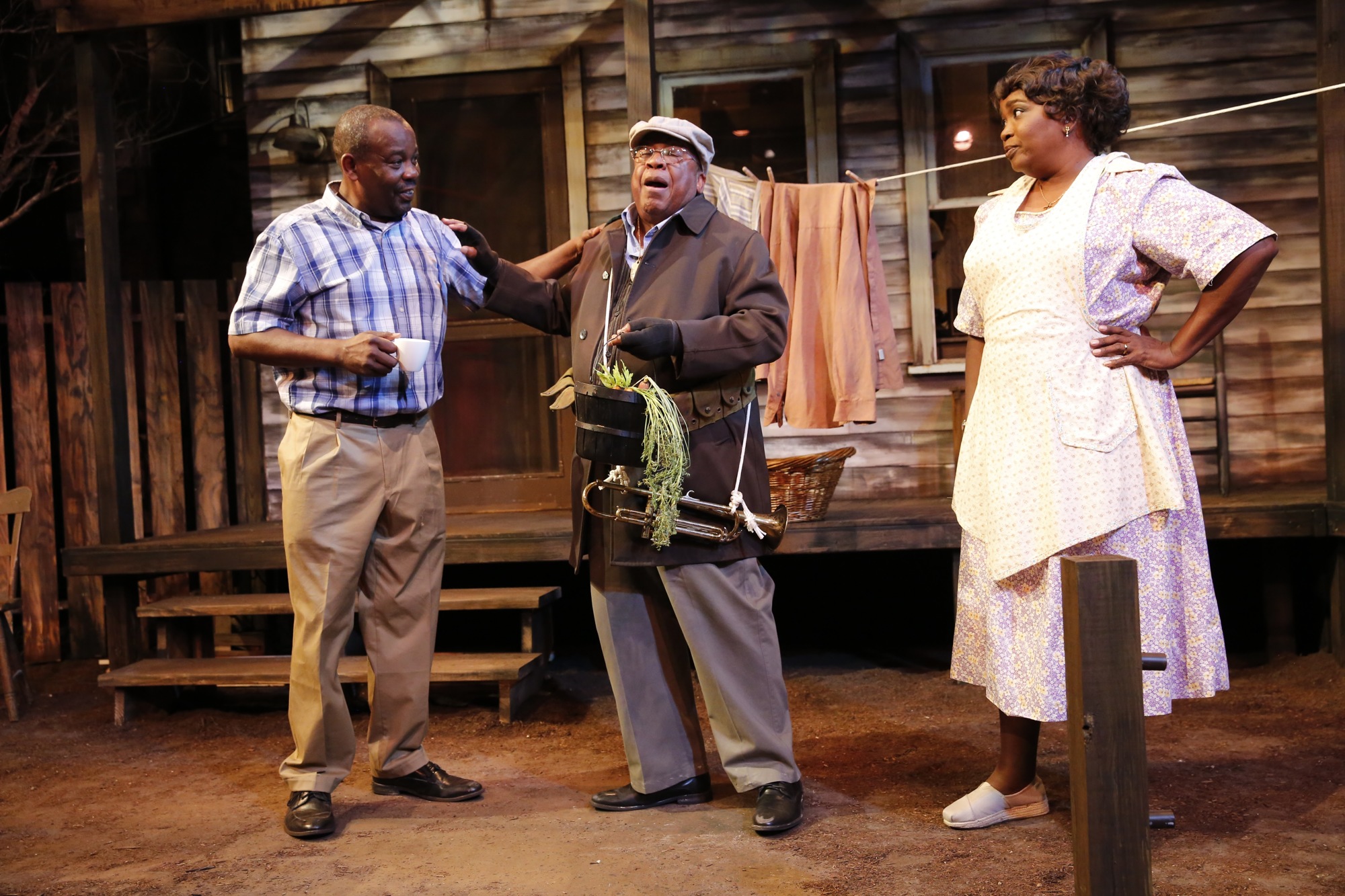
Troy (Phillip Cherry) was born with black skin and world-class athletic talent. Sadly, he was born in 20th century Alabama, where crime was the logical career choice for a black runaway. During his 15-year stint in prison, Troy mastered a rigid philosophy of duty and the subtle art of baseball. He emerged as a power-hitting prodigy on the level of a Babe Ruth or Hank Aaron. Even so, Troy was a 40-something black ballplayer in the early 1940s. For a few happy years, he knocked it out of the park in the Negro Leagues. They let him go in 1947 — the same year that Jackie Robinson broke the color line. After that, Troy accepted a job as a garbage collector in 1950s Pittsburgh without complaint. Like some 20th century Stoic, Troy did what he had to do to support his family. Because that’s what men do. But deep down, Troy never felt like a man.
Troy’s backstory is an old wound; the playwright removes the bandage slowly. Wilson doesn’t show you Troy’s simmering bitterness, at first. At the play’s start, he’s 53 years old, but still full of life and laughter. Troy flirts with his wife (Phyllis Banks), shares a pint of gin with his friend (Edwin Watson) and builds a fence around his house. Then Troy’s carefree façade cracks. His youngest son, Cory (Todd Bellamy II), dreams of a football scholarship to college. The White World of Sports shattered Troy’s dreams — he’ll be damned if he’ll let them do that to Cory. Troy says he’s sparing his son the humiliation of his failure. The truth is, Troy’s sparing himself the humiliation of his son’s success.
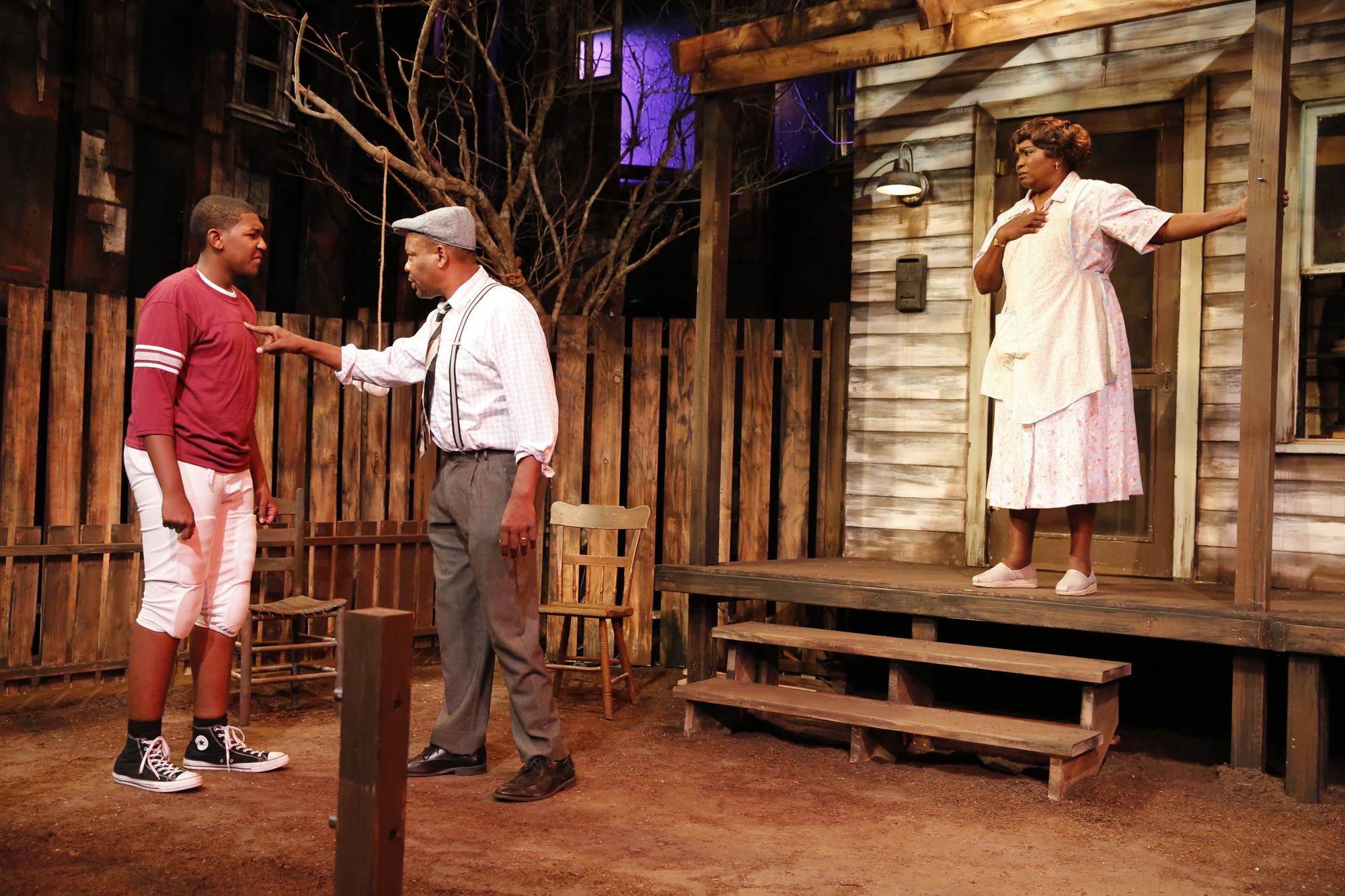
So, in a flurry of righteous rationalization, Troy kills Cory’s dreams. That’s when the bandage comes off.
Once you harden your heart to your son, giving your wife the same treatment gets a little easier. Troy wants to feel like a man, now. And to hell with duty.
Director Kristofer Geddie does justice to the rich layers of Troy’s story. Wilson’s plays pull you out of mundane, chronological time. The heartbeats of his imagined lives flow through you in an eyeblink — and make you feel like you’ve lived inside someone else’s skin for 50 years. Wilson’s words are magical, but it takes the right director to work their spell. Kudos.
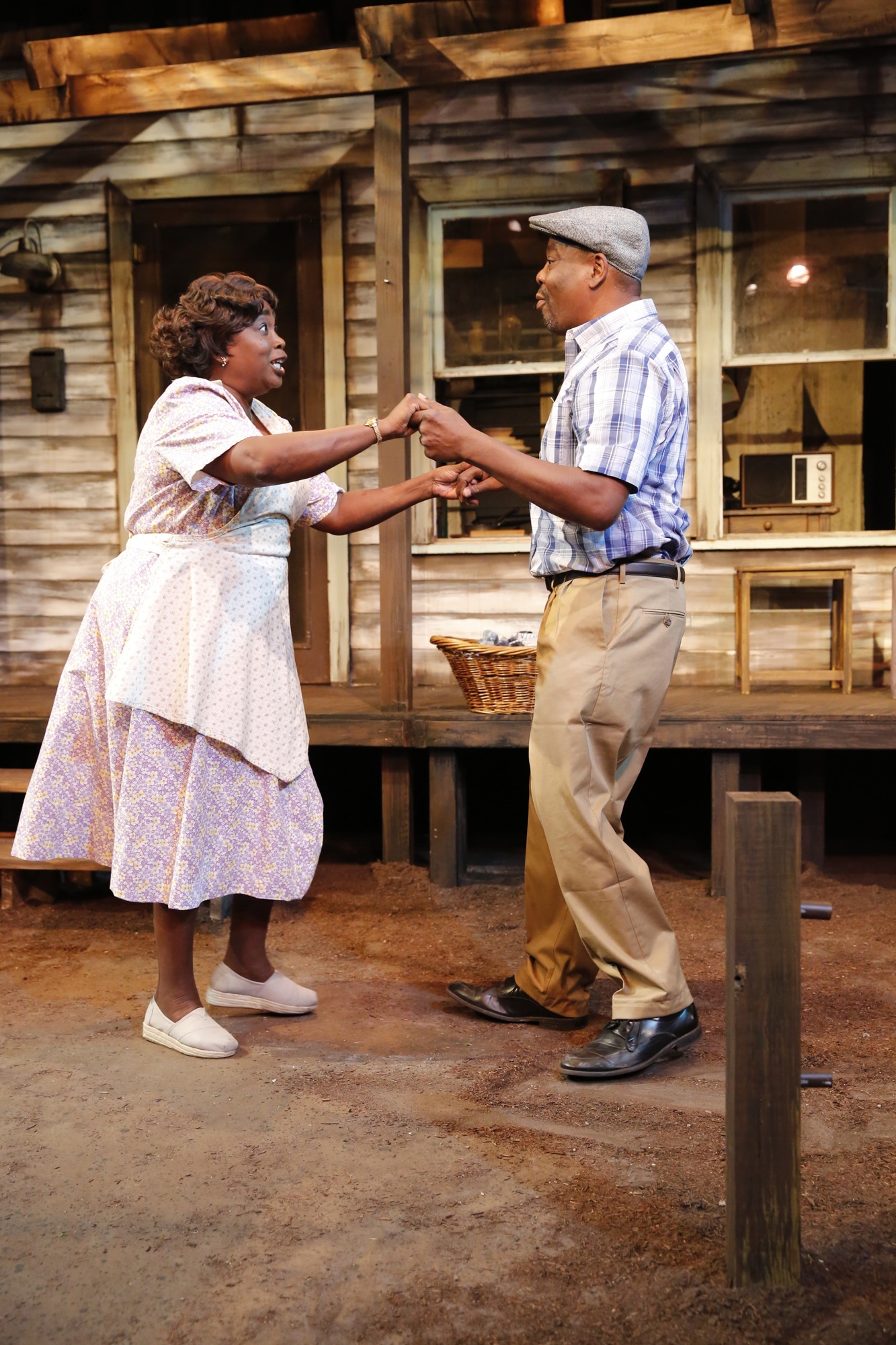
Cherry’s Troy is a loud, shouting, charismatic figure brimming over with the life force and an unwavering sense of self. His Troy is a tragic figure — but only looking backward from the future to the past. In the now, Troy is fully alive. Most people sleepwalk through life. Wrong or right, Troy is all here. Banks portrays his wife, Rose, as a sweet example of the Stockholm Syndrome. She sees the world from Troy’s point of view and says exactly what he wants to hear. Troy has to push Rose hard before she pushes back. When that finally happens, you see Rose’s inner fire.
Bellamy’s Cory nicely communicates the speech and body language of a son who’s learned to wear a poker face under his father’s constant control. Willie Marte delivers a subtle, low-key performance as Lyons, Troy’s older son. He’s an easygoing jazz player, who constantly asks his dad to come hear him play, and never gets “yes” for an answer. Watson conveys an inner and outer life of great complexity as Troy’s best friend, Jim Bono. Jim occasionally gets his friend’s attention — before Troy goes back to his own thing. Carroll Hunter is haunting as Gabriel, Troy’s brain-damaged brother. His character is touched, in the Shakespearean sense. Gabriel’s ruined mind easily wanders to the no man’s land between this life and the next.
Tim Wisgerhof’s lovingly detailed set will make you say "wow." Nicholas Hartman’s costumes feel like the tattered and torn clothes of the times.
What does it all mean?
That’s not an easy question.
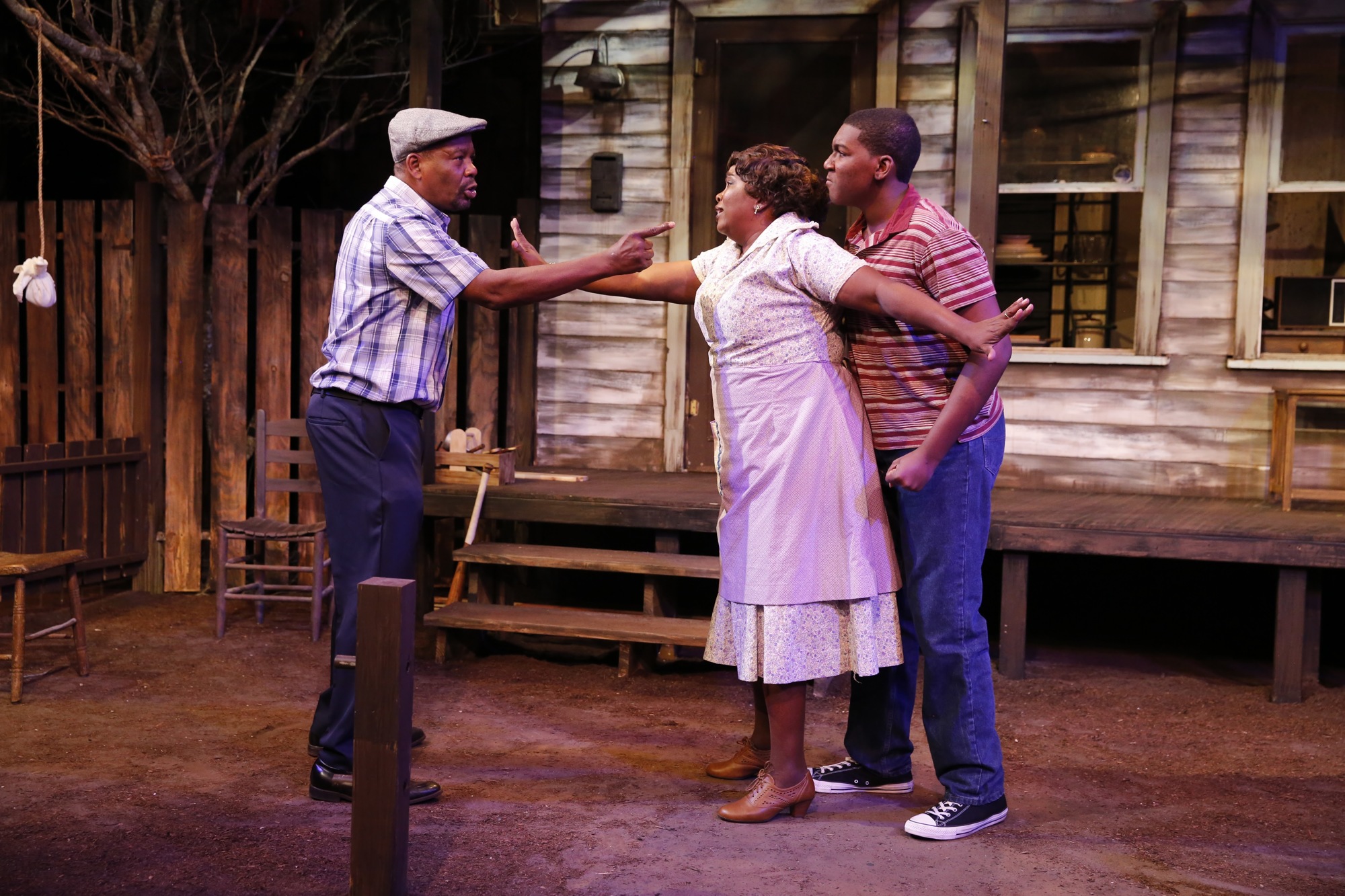
Wilson’s “Fences” is a graduate-level course in ethical philosophy. It’s also a front-line dispatch from the battleground of spiritual warfare. I could slice it up into fortune cookie statements, but I’d be lying. Every thesis has an antithesis. The playwright stuffs your mind with questions. Wilson clearly wants you to see this play more than once.
I should leave it at that. But fools rush in …
OK. By the lights of traditional Christian theology, Troy’s pride is a sin. Perhaps. But where Western literature typically pokes a pin in the pretensions of prideful characters, Wilson doesn’t. Troy isn’t a jerk who thinks he’s a great man. Troy truly is a great man — but one who’s fallen to a level of indifference and disrespect. The playwright doesn’t point a moralizing finger and say he’s wrong. Wilson simply wants you to know how Troy feels. And he succeeds.
Pride may be a sin. But crushing a man’s pride may be worse.
For what it’s worth, I think that’s what it all means.